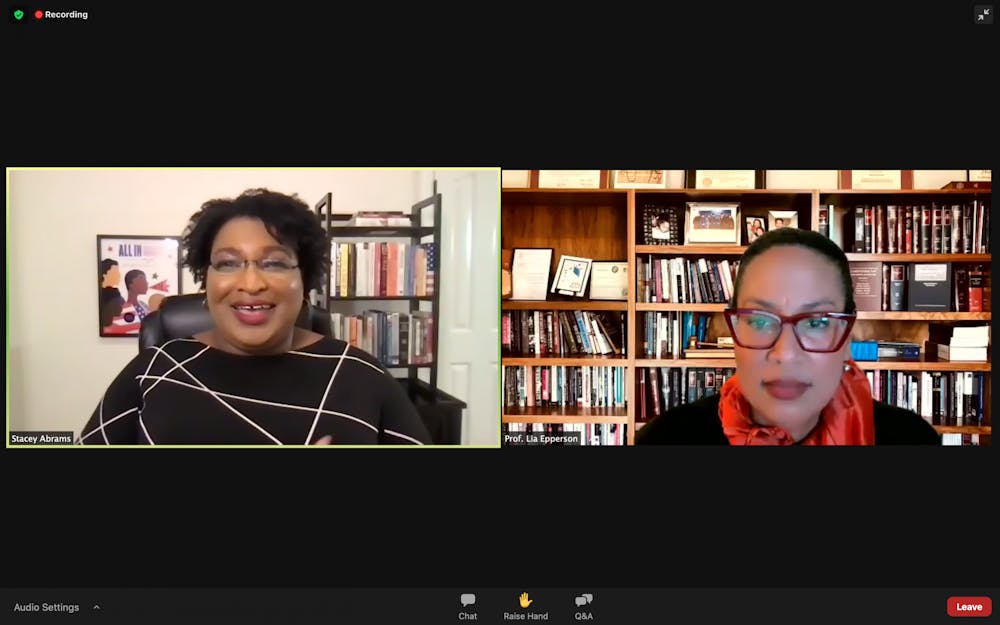At a virtual event Monday that marked the beginning of Founders Week, activist and politician Stacey Abrams discussed her advocacy for voting rights and advised how younger generations can get involved in their communities.
The event was moderated by Washington College of Law professor Lia Epperson, with more than 500 in attendance Monday night. The Kennedy Political Union, Founders Week and Women’s Initiative were among the co-hosts.
During the conversation, Abrams focused primarily on voter suppression, a major throughline of the 2020 general election. Hundreds of thousands of Georgians have been unlawfully purged from their voting rights in recent years, she said.
Abrams served as minority leader in the Georgia House of Representatives for six years and was the first Black woman in the U.S. to be a major party’s nominee in a gubernatorial race. In 2019, she founded Fair Fight, a voting rights organization aimed at promoting fair elections.
“When I didn’t become governor, it didn’t relieve me of the responsibility to keep pursuing the issues that matter,” Abrams said when discussing the founding of Fair Fight. “What it did teach me was that one of the ways I was going to effectuate the changes I wanted, was to fix the system of voting.”
The coronavirus pandemic has changed how political organizing takes place, but Abrams believes that her team at Fair Fight and other organizers in Georgia have been able to thrive.
“We did not disarm in the face of catastrophe,” Abrams said. “It became a galvanizer, as we saw opportunity in chaos.”
Epperson asked Abrams where she finds strength in an ever-challenging field. Abrams said that she relies on three principles: reminding herself why she does the work she does, letting herself take time to breathe and plotting her next steps to achieve goals.
“I refuse to believe that defeat is permanent,” Abrams said. “I have failed and I have lost, but I have not stopped.”
Abrams also called on Congress and President Joe Biden’s administration to pass the For the People Act, a bill designed to expand voting rights across the country. She referred to it as a “federal system creating uniformity in the access to our democracy.”
She believes that the Democratic Party should attempt to work across the aisle with Republican colleagues, but in a way that does not compromise its key values. She stressed that it is not worth Democrats’ time to convert the Republican Party to its belief system.
“We should work together where we can with Republicans to get good work done,” Abrams said. “But, we should always be focused on building the capacity of those who share our beliefs.”
Abrams advised younger generations to never reduce or settle over their ambitions, even when society may be stacked against them.
At a student media event before the moderated talk, Abrams was asked about how she deals with the pessimism that could potentially arise in much of her work.
“I am not optimistic, or pessimistic, I am determined,” she said.





